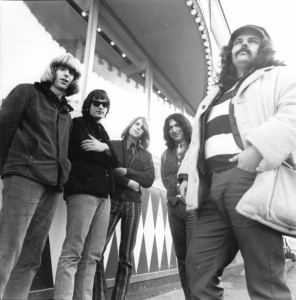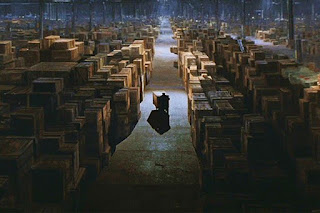Unit 7 Digital Copyright
My Thoughts on Digital Copyright
The news media has discussed and debated copyright issues over the past few years as more industries and products move to the digital realm with its ease of transfer, sharing, sales, etc... It is important for professionals that believe/hope/demand that their efforts and outputs have value and deserve compensation. It is also important for amateurs and enthusiasts who want to share information, graphics, or "the word." Historians, especially independent historians, must understand copyright laws and practices to ensure that they are not liable to claims, and that they can best use existing information and products to inform their readers.
The readings chronicle the changing laws and fights over copyright law, and it is easy to see merit on both sides. Creators deserve compensation for their works, but do their grandchildren, as the readings ask? Similarly, the public has an interest in the sharing of knowledge and advances, especially for education. Rules/laws that favor one side are counterproductive to society, and a balance is appropriate.
Any original thoughts or words that you write on your blog or website are yours, barring fair use of snippets or pieces of text. Original photos are yours, but you should protect them with a site policy. If you want to past someone else's media, it is trickier. You can look for a free/public image without issue, you can contact the media's owner and ask for permission, or you can post and give credit (risk that the owner could say no later). For amateur or private blogs/sites, I am comfortable with the post and credit for most items (if the owner is not obvious). If you are running a commercial site; however, you should play it safe and not profit from others' work.
The Fair(y) Use video was clever, but dragged on a little long (in my opinion). It got the point across in a funny way, but it was difficult to follow the dialogue.
The MLK Jr. "I Have a Dream" (is it OK to post that?) copyright article was interesting. Is a public speech public, or can someone own the rights to the words and recordings? Is it the same thing as a concert, where the singer can retain the rights to the song, the music, and any recordings of the show?
Local Museums and Copyright
The several local museum websites/organizations appear to handle copyright in varying ways. There was not a consistent pattern (that I noticed) and the focus on copyright seemed to depend upon their commercial interests.
The Reston Museum's site was copyrighted to the Reston Historic Trust and Museum in 2017. The site has an online catalog of the museum's items, and a database of images of items. There are no apparent copyright or use instructions posted on the site for these items.
The Loudon Museum's site was copyrighted in 2017, and the museum published a Photo Policy for use of their images, and of pictures/photos taken of their items.
http://www.loudounmuseum.org/wp-content/uploads/2012/12/Photography-Policy.pdf
It states: "The Curator handles all professional and commercial requests to photograph exhibits and locations within the Museum. Commercial or professional photography must be arranged in advance.
Notice of intent to publish is required for all print and digital publications, excluding social media sites.
Images and reproductions may also be purchased for private or commercial use. Consult the Loudoun Museum service agreement for digital reproduction of images for further details.
The Museum maintains the right to deny any photography requests in the effort to comply with all legal and institutional restrictions."The Fairfax Museum's site was copyrighted to the City of Fairfax, VA in 2017, as it is part of the city government's overall site. A related website, Historic Fairfax, http://www.historicfairfax.org/monthly-events-programs/, was copyrighted in 2013 to the Historic Fairfax City, Inc. It is unclear from the websites whether the city or this private entity owns the museum.
Colonial Williamsburg's website was copyrighted in 2017 to the Colonial Williamsburg Foundation. It has a detailed Terms of Use page on its website, that covers multiple media and uses of the museum's images, info, etc... It is found at http://www.history.org/foundation/terms.cfm
The page starts, "The Colonial Williamsburg Foundation (“CWF") provides text, audio and video files, data, media, digital images, trademarks, and all other content (collectively, “Content”) on its websites for personal and educational use only. Any commercial use of Content from CWF websites is strictly prohibited. By accessing our Content you agree to the following terms and conditions, which CWF may change at any time. You should refer to these terms and conditions each time you intend to use Content from any CWF website. If you have questions about these terms and conditions, you may contact the webmaster at the address listed below."
The Cold War Museum's site has no clear copyright published, though some products/materials have copyrights associated with them.
The Manassas Museum's site was copyrighted in 1997-2017 by CivicPlus Content Management System with all rights reserved. The city of Mannasas' site was also copyrighted in 2006-2017.
The Alexandria Archaeology Museum's site was copyrighted in 1995-2017 by the City of Alexandria, VA and others. A related site, Friends of Alexandria Archaeology, http://www.foaa.info/about/, was copyrighted ©FOAA, c/o Alexandria Archaeology Museum, 105 N. Union Street, Alexandria, VA 22314.
Some other local museum's for consideration are the Smithsonian Museums, Mount Vernon, and the Marine Corps Museum at Quantico.
My Thoughts and Comments on Cohen and Rosenzweig, CH 7, "Owning the Past?"
- There is a balance between copyright and fair use. Many use the works of others to create something new and valuable.
- There is a debate over the internet as a "commons" and as a "marketplace." The Creative Commons movement seeks to balance IP rights and public benefit.
- Historians are not lawyers, but they must learn copyright laws and rules as they navigate the choppy waters of digital media.
- I did not realize the copyright was in the Constitution, and like everything in the Constitution, it is debated and reinterpreted.
- Creators and publishers deserve reward for their works, and it is understandable that they would often want to extend copyright for as long as possible.
- Fair use is often in the eye of the beholder.
- Mark Twain had a good defense of copyright. He wanted the law to protect his children, but could “let the grandchildren take care of themselves.”
- You can't copyright facts.
- No matter how much work or effort is put into research and building a site/database, the facts inside are not copyrighted.
- I remember a controversy over the book The DaVinci Code where another author sued Dan Brown for copyright infringement from the use of theories and ideas from his own book. Spoiler alert: this author claimed Brown stole the ideas about Jesus' blood line from his own research. If my memory is correct, Brown ultimately won because you can't copyright a theory.
- Copyright laws for printed goods are the same in cyberspace.
- It is easy (and tempting) for historians to cross the fair use boundaries due to the ease of digital media.
- It is not always obvious or easy to determine who owns the copyright to a picture, sound, or video.
- Projects to digitize previous media must realize up front that once they are published, they may be free for all to use.
- I wonder if copyright laws deter plagiarism too?
- You can't copyright an idea. Despite this, some authors will not read fan submissions or ideas for stories out of the hassle/fear of later litigation.
- How would academia change if schools and institutions demand copyright and IP for any materials their employees produce, including research, books, etc..? What prevents this?
- Creative Commons allow free use for noncommercial purposes. How do they monitor the final products?
- Determining what is in the public domain is not easy, but is worthwhile, especially for those interested in the 20th century.
- US government products belong to the American public, minus some exceptions for national security and privacy. Despite this, some agencies seem to resist or slow-walk FOIA requests.
- There are a lot of caveats for copyright.
- It is interesting to imagine what will happen when Disney characters enter the public domain. Will imitation Disney Worlds open? Will random vendors start adding Mickey to every product?
- I learned about the GATT treaties in high school thanks to my Pink Floyd cd collecting. GATT regulated the international sale of "bootleg" albums, and put restrictions on what could be produced and sold overseas to the US. The Pink Floyd ROIO Database was a database of available albums (see link on my main blog page).
- Details on Fair Us: "Section 107 of the 1976 Copyright Act explains that “fair use of a copyrighted work … for purposes such as criticism, comment, news reporting, teaching (including multiple copies for classroom use), scholarship, or research, is not an infringement of copyright” and then lists the following four nonexclusive factors to be used in determining fair use (our parenthetical comments are added):
- “The purpose and character of the use, including whether such use is of a commercial nature or is for nonprofit educational purposes” (nonprofit educational uses are more likely to be fair as are those involving criticism, commentary, and parody);
- “The nature of the copyrighted work” (uses of creative and unpublished works are less likely to be fair; uses of factual, published, and out-of-print works are more likely to be fair);
- “The amount and substantiality of the portion used in relation to the copyrighted work as a whole” (the smaller and less “central” the portion used, the more likely it is to be fair);
- “The effect of the use upon the potential market for or value of the copyrighted work” (using out-of-print works and works for which there is no permissions market is more likely to be fair)."
- Interesting quote that applies to other rights too: “...the right of fair use is valuable to scholarship, and it should not be allowed to decay because scholars fail to employ it boldly.”50
- There are no sound recordings in the public domain. Is this even true for the LoC or Archives?
- Studios, publishers, and others may use permission to censor historians or critics.
- There are debates on the ethics of sharing links (deep linking) and diverting traffic.


Copyright and Fair Use are two different concepts, and that is something that a lot of users have trouble remembering. While copyright is pretty straight-forward (once you create something, it is protected), the fair use provisions are very complex.
ReplyDeleteMy problems with copyright are two-fold, one the increasing length of protection (I agree with Twain) and the inordinate length of time for institutional holders of copyright. I am also of the opinion that if an institutional holder (such as a newspaper) ceases to exist, then the copyrighted material should default into the public domain.